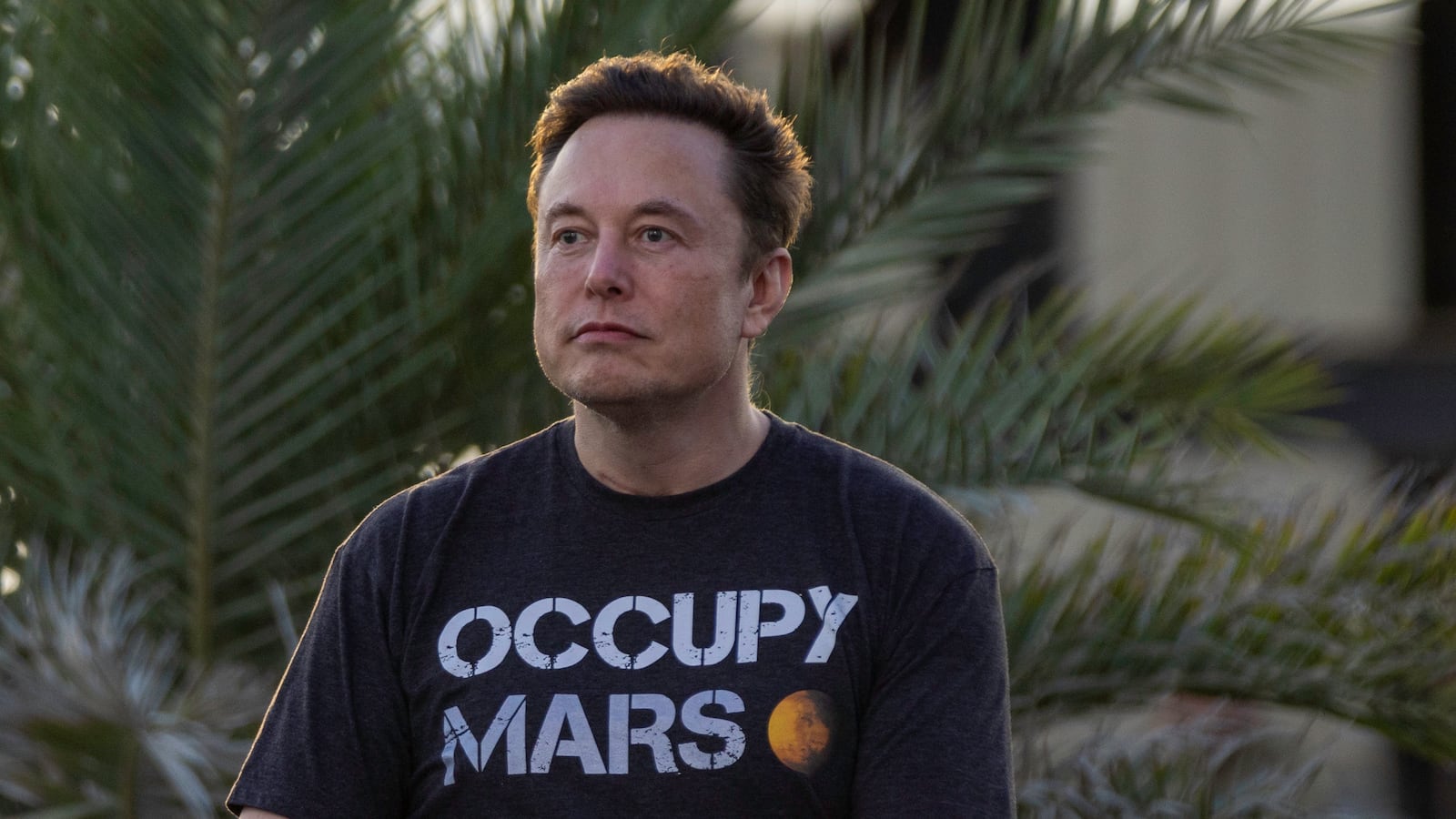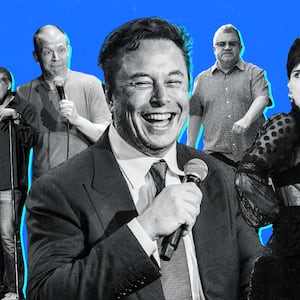Amid a mass exodus of advertisers, “Chief Twit” Elon Musk took to his newly purchased social media platform on Wednesday to assure companies that Twitter will remain a safe space for their brands. In an hour-long livestream, known as a “Twitter Space,” Musk cajoled advertisers with promises of robust content moderation and account verification practices. The billionaire faces a formidable challenge: shoring up Twitter’s revenues without alienating the highly vocal band of right-wing users who initially celebrated the acquisition.
Twitter lost—either temporarily or permanently—at least nine of its major advertisers in the two weeks after Musk took the helm, including big names like General Mills and Volkswagen. Many of the brands suggested they were concerned about potential changes to the platform’s content moderation policies, and whether their ads would be placed next to racist or hateful speech. (Musk, meanwhile, blamed the exodus on the activists organizing a boycott of the platform.)
On Wednesday, he seemed determined to win back corporate support, taking a softer, more moderate tone as he discussed thorny issues such as mitigating toxic speech and implementing a broader verification system.
Below are the top takeaways from Musk’s attempted kumbaya moment.
Musk ditched his internet troll persona
In his tweets, Musk has developed a reputation as a provocateur, posting (then deleting) a fringe conspiracy theory about last month’s attack on Nancy Pelosi’s husband, engaging repeatedly with right-wing users (including several interactions with one named Catturd), and making reference to the numbers “69” and “420,” the latter of which is associated with marijuana. During Wednesday’s call, Musk sounded far more subdued, perhaps in an effort to appear responsible and even-keeled to advertisers. The billionaire has acknowledged that Twitter quickly suffered a “massive drop in revenue” after he took over, helped by activist groups urging companies to pause or cease spending. He suggested this week that he has grounds to sue the organizers of those boycotts, but the activists (and legal experts) don’t seem to be taking him seriously.
In a statement on Wednesday, Nora Benavidez, senior counsel at the public advocacy group Free Press—one of the protest organizers—dismissed Musk’s effort to “woo advertisers back” via the Twitter Space. “Musk pays lip service to principles of innovation, free speech, and inclusiveness,” she said. “Unfortunately, he has a long track record of silencing and targeting speech he dislikes.”
Users who don’t pay for verification will be buried
Musk is aggressively pushing users to pay $8 per month for Twitter Blue, which will get them a blue “verified” check next to their username. Prior to the acquisition, the checkmarks had been reserved for politicians, brands, journalists, and other users likely to be impersonated. While details of Musk’s changes have seemed to evolve by the hour, on Wednesday he suggested that Twitter will bury content published by anyone who doesn’t pay the monthly fee. “Over time, maybe not that long of a time, when you look at mentions and replies and whatnot, the default will be [to those who are] verified,” he said. Musk added that users will be able to find posts from unverified accounts, but it would be akin to sifting through the spam folder in Gmail.
Musk’s right-wing acolytes may be bummed about his approach to content moderation
“There’s a big difference between freedom of speech and freedom of reach,” Musk said on Wednesday. “If you just were to go to Times Square right now, there’s going to be somebody saying something crazy… We don’t throw them in prison for that, but we also don’t put them on a gigantic billboard.”
Some fringe users, including right-wingers who initially celebrated Musk’s purchase, may be frustrated to hear that. For years, many of them had complained that they were being suppressed, or “shadow banned,” preventing their content from reaching the widest possible audience. Musk, in trying to assuage advertisers, insisted that “thus far, our moderation policies have not changed.”
Twitter’s forthcoming “content moderation council” will be toothless
Soon after the acquisition, Musk announced that Twitter would establish a “content moderation council” to weigh in on policy decisions, including which currently suspended accounts to unban. Facebook has a similar advisory body. The billionaire emphasized during Wednesday’s conversation that the group will be an “advisory council, not a command council,” and that final decision-making power will rest with him. “At the end of the day, I am the Chief Twit here,” he said. Interestingly, Musk also stated that while he intends for Twitter to remain neutral as a platform, he has no plans to stay neutral himself. “No person is,” he said.
Musk wants to reduce the influence of media outlets
“Power to the people,” the world’s richest man declared, calling for an increase in “citizen journalism” to combat the concentration of influence held by media outlets. Right now, he asserted, the “Western narrative” is “overly defined by a small number of major publications.” Musk said he doesn’t want to diminish the power of media outlets and reporters, but instead amplify alternative points of view. Journalists are often assailed on Twitter—particularly by right-wing users—for maintaining a homogenous “blue checkmark” ideology. Musk likened the current verification system to one of “lords and peasants,” adding: “At least in the United States, we fought a war to get rid of that stuff.”
The billionaire wants to rapidly evolve Twitter’s technology
Having, by his own admission, overpaid for Twitter, Musk is now seeking alternative revenue streams. On Wednesday, he suggested that technology upgrades to the platform could include “one-click” shopping, allowing people to send money to each other, and offering users a high-yield money market account—effectively turning Twitter into a bank. The proposed upgrades echo Musk’s previously stated vision of converting Twitter into an “everything app” analogous to WeChat, a hugely popular app in China.








